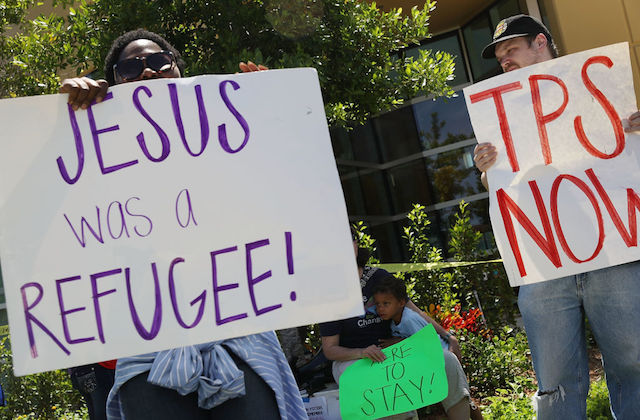Trump Administration Terminates Protected Status for Thousands of Nicaraguan Immigrants

The Trump administration made a much-anticipated announcement yesterday (November 6) regarding the residency status of thousands of immigrants with the Temporary Protected Status (TPS) designation.
The TPS program provides lawful residency status for nationals of countries where the United States feels armed conflict, natural disaster or other circumstances prevent them from safely returning. It was established by Congress as part of the Immigration Act of 1990, and it has been extended to nearly 437,000 people from ten countries: El Salvador, Haiti, Honduras, Nepal, Nicaragua, Somalia, Sudan, South Sudan, Syria and Yemen. The protected status for many of these people is set to expire on various dates between January 2018 and May 2019, depending on their country of origin. More than 317,000 of them are expected to re-register for protection, and the government is tasked with deciding which designations are still necessary and which should be terminated.
Acting secretary of Homeland Security Elaine Duke announced yesterday that the designation will be revoked for the 2,550 Nicaraguans expected to re-register for the TPS designation. They have all been living in the United States since at least 1998. The termination will be effective on January 5, 2019—one year after it was set for expiration or renewal—to “allow for an orderly transition.”
From the Department of Homeland Security's (DHS) statement:
The decision to terminate TPS for Nicaragua was made after a review of the conditions upon which the country’s original 1999 designation were based and whether those substantial but temporary conditions prevented Nicaragua from adequately handling the return of their nationals, as required by statute. There was also no request made by the Nicaraguan government to extend the current TPS status. Based on all available information, including recommendations received as part of an inter-agency consultation process, Acting Secretary Duke determined that those substantial but temporary conditions caused in Nicaragua by Hurricane Mitch no longer exist, and thus, under the applicable statute, the current TPS designation must be terminated.
To allow for an orderly transition, the effective date of the termination of TPS for Nicaragua will be delayed 12 months. This will provide time for individuals with TPS to seek an alternative lawful immigration status in the United States, if eligible, or, if necessary, arrange for their departure. It will also provide time for Nicaragua to prepare for the return and reintegration of their citizens. TPS for Nicaragua will terminate on January 5, 2019.
Duke also said that the administration needs more time to determine if the 57,000 Honduran nationals—who have also been in this country for two decades—will see their protections revoked. Her agency extended the TPS designation expiration date six months, to July 5, 2018, while it makes the decision.
The statement also says that Nicaraguans and Hondurans with TPS will either need to leave the country or reapply for employment authorization documents to work in the U.S. Details will be released in an upcoming Federal Register notice.
As The Washington Post notes, there are 46,000 Haitians whose TPS designation is set to expire on January 22, 2018. The agency has until November 23 to announce a decision. DHS already terminated the program for nationals of Sierra Leone and Sudan earlier this year; they lost TPS on May 21 and November 3, respectively.
Congressional Hispanic Caucus chair Michelle Lujan Grisham (D-N.M.) posted a statement about the decision on Facebook:
The Trump administration’s irresponsible decision to end TPS for Nicaraguans will tear apart families and upend the lives of these hard-working individuals. These immigrants have lived in the United States for nearly 20 years and have raised U.S. citizen children, contributed to our economy and enriched our communities. Deporting families who are contributing to the economic and social fabric of our nation isn’t leadership; it’s a reckless and callous abuse of power. It is now up to Congress to provide relief for these immigrant families. We call on Members of Congress to join the Congressional Hispanic Caucus in supporting the passage of the American Promise Act, which would ensure individuals who reside in the U.S. under TPS remain in the country and have the opportunity to pursue a path to naturalization.
